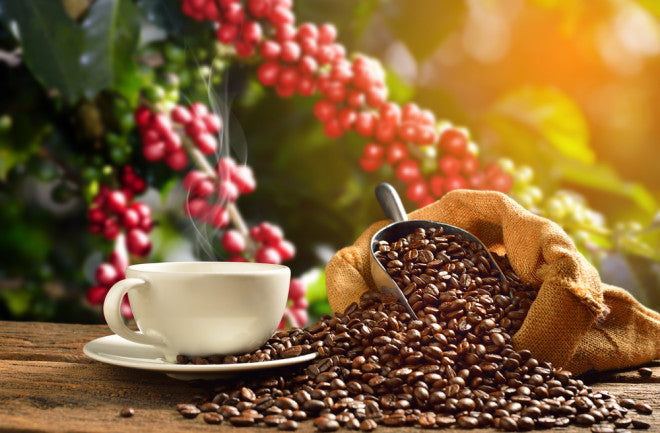What makes specialty coffee different?

Coffee is one of the most popular beverages in the world, with billions of cups consumed daily. However, not all coffee is created equal. Specialty coffee has gained popularity in recent years, with coffee enthusiasts flocking to cafes and coffee shops that offer high-quality, artisanal brews. We are often asked what makes specialty coffee different from other types of coffee? Here are some brief, but important distinctions.
First, let's define what specialty coffee is. Specialty coffee is coffee that has been rated by a certified coffee taster or Q grader with a score of 80 or above on a 100-point scale. This means that specialty coffee is of exceptional quality, with unique flavor profiles, and is produced using high-quality beans.
Now, let's look at the key differences between specialty coffee and other types of coffee:
Quality of beans
Specialty coffee is made from high-quality beans that are grown in ideal conditions. These beans are carefully selected and harvested by farmers who understand the importance of picking only the best beans. The beans are then roasted by skilled roasters who know how to bring out the unique flavor profiles of each batch of beans. In contrast, non-specialty coffee often uses lower quality beans that are mass-produced and lack the unique flavor and aroma of specialty coffee.

Cupping Coffee
The Roasting process
Roasting is a crucial step in the coffee-making process that greatly affects the final flavor of the coffee. Specialty coffee roasters use a careful and meticulous roasting process that brings out the unique flavors and aromas of the beans. The roasting process is carefully timed and monitored to ensure that the beans are not over-roasted or under-roasted to achieve the light, medium or dark profile best suited for the specific beans. Non-specialty coffee, on the other hand, often uses a more mass-produced roasting process that may result in inconsistent flavor profiles.
Freshness
Freshness is another key factor that sets specialty coffee apart from other types of coffee. Specialty coffee is often roasted in small batches to ensure that the coffee is always fresh. The beans are typically roasted and packaged within a few days of being harvested, which helps to preserve the flavor and aroma of the coffee. In contrast, non-specialty coffee is often roasted and packaged in large batches, which can lead to staleness and a loss of flavor.
Unique flavor profiles
Much like wine or craft beer, specialty coffee is known for its unique flavor profiles, which are the result of careful selection, roasting, and brewing. Each batch of specialty coffee has its own distinct flavor and aroma, with notes of chocolate, fruit, nuts, and spices. Non-specialty coffees often have a more generic flavor profile that lacks the depth and complexity of specialty coffee.
Ethical and sustainable sourcing
Finally, specialty coffee is often sourced from ethical and sustainable producers who prioritize the well-being of their workers and the environment. Specialty coffee farmers are paid a fair price for their beans and are encouraged to use environmentally friendly farming practices. Non-specialty coffee, on the other hand, may be sourced from less ethical and sustainable producers who prioritize profit over social and environmental responsibility.
Specialty coffee is not just a marketing buzzword. It is made from high-quality beans that are carefully selected, roasted, and brewed to produce a unique flavor profile. You’ll be please to know that specialty coffee from Cupper’s Choice is always sourced from ethical and sustainable producers, making it a great choice for coffee lovers who care about quality and sustainability.
Try some today and taste the difference.

Leave a comment